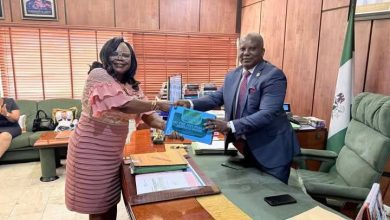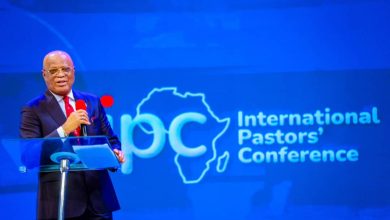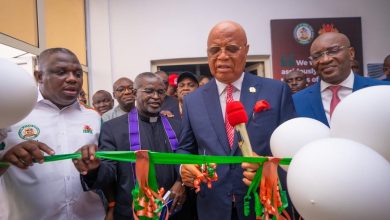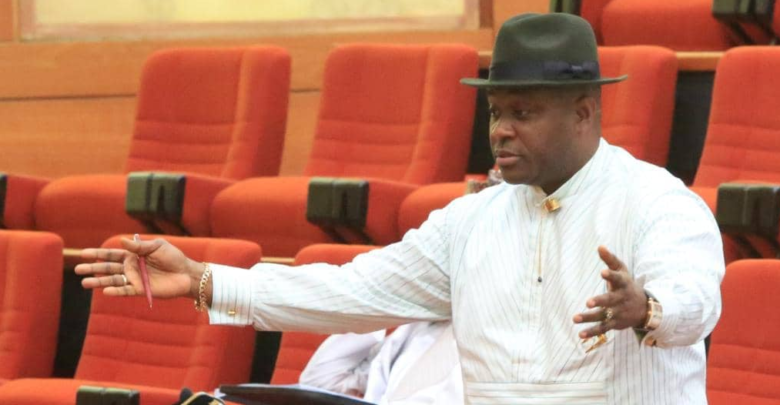
Senator Bassey Albert Akpan is undeniably a foremost protagonist of reforms in the oil and gas sector of our national economy, the latest being the Petroleum Industry Bill (PIB). Obong Bassey Albert Akpan, popularly known as OBA, has generally made indelible marks in Nigeria’s economic life.
His well-coordinated roles in attaining these milestones cannot be dismissed. Of course, one would be right to describe OBA as an eagle eye, keeping watch over Nigeria’s economic fortunes, to ensure a timely intervention where necessary. This piece is dedicated to showcasing his undaunted determination in fighting hard to put the nation’s economic sustainability on a proper footing.
To proceed on this interesting conversation, however, there is need to unmask the Petroleum Industry Bill (PIB). The PIB is a consolidated Bill which started as an omnibus bill since 2008. It was later divided into four (4) separate bills. Previous attempts to pass the bill in 2009, 2012 and 2018 failed for numerous factors like “lack of ownership”, “misalignment of interests between the National Assembly and the Executive”, “perceived erosion of ministerial powers”, “stiff opposition by the petroleum host communities” and “push back by investors on the perceived uncompetitive provisions” in those versions of the bill.
PIB, 2020 is a law in the making, and seeks to introduce far-reaching reforms in the Nigerian oil and gas industry. The purpose of the bill is to establish good governance, best practices, and ease of doing business in the industry, by clarifying roles and responsibilities of officials and institutions. It seeks to enable frontier exploration, mandate improved environmental compliance, and transform the Nigeria National Petroleum Corporation (NNPC), into a commercially viable enterprise. It was aimed at replacing obsolete laws to bring them in alignment with current trends and realities.
Related: PIB Will Address Concerns Of Host Communities – Senator Bassey Albert
The bill proposes the Upstream Regulatory Commission for upstream operations, including the granting of petroleum exploration licenses. The PIB provides for the establishment of the Midstream and Downstream Regulatory Authority for midstream and downstream operations.
Again, the PIB provides for the creation of a Host Communities Development Trust. The oil operators, described as settlors, are obliged to incorporate a trust for the benefit of the host communities and make an annual contribution, based on a certain percentage of their yearly operating expenditure. The regulator will apply the Fund towards the rehabilitation, remediation or management of negative environmental impact only when the licensed operator lacks the capacity, or is unable to effectively undertake the rehabilitation or management of any negative impact on the environment.
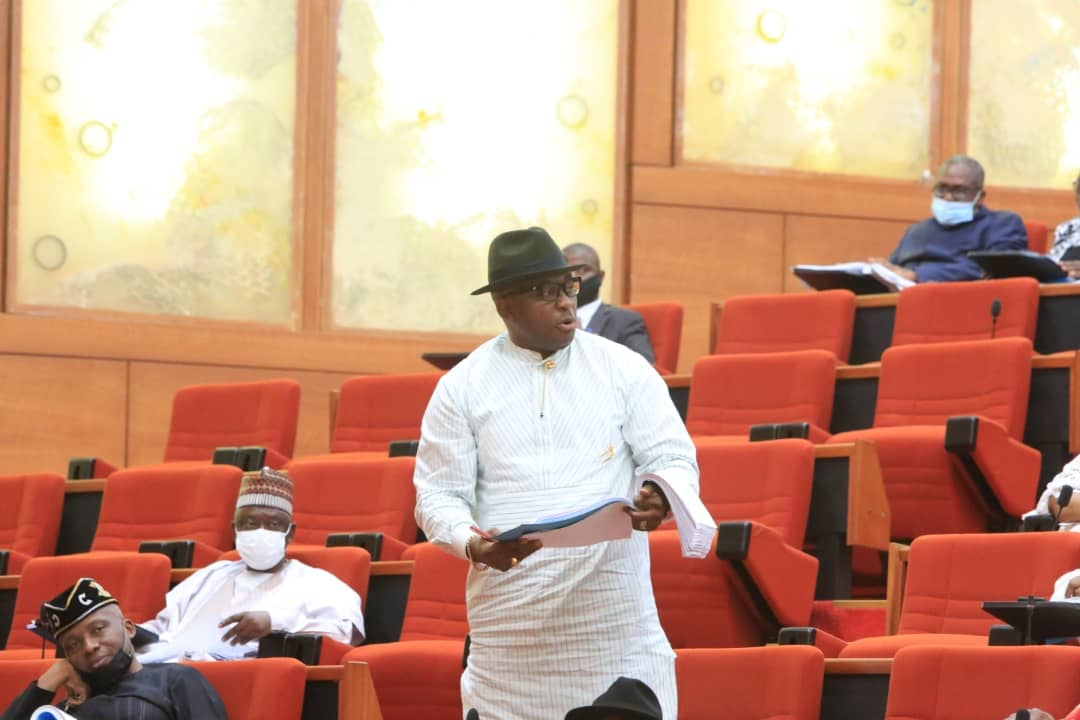
Notably, the previous administrations failed to pass the PIB into law because of many factors, including politics, sectional interests, and lack of political will. But a combination of factors, including the commitment of the President Muhammadu Buhari-led administration, host communities and oil and gas operators, enhanced the passage of the Bill. Unlike the past, when community issues were widely condemned, the conversation about Host Community Trust Fund shifted to community representation, the structure of the fund, and equity stakes, making it possible to establish trust and confidence among relevant actors.
Meanwhile, the Senate on Thursday, July 1, 2021 passed the PIB, approving three (3) per cent for host communities. The upper chamber passed the PIB, 2021, after the clause-by-clause consideration of the report of its joint committee on Petroleum (Upstream, Downstream and Gas) on PIB co-chaired by Senator Bassey Albert Akpan.
Read Also: Senator Bassey Albert Outlines Factors For Grassroots Development
Before the passage, the Senate was said to have held a closed session with the Minister of State for Petroleum, Timipre Sylva and the Group Managing Director of the Nigerian National Petroleum Corporation (NNPC), Mele Kyari. In his remarks, the president of the Senate, Ahmad Lawan congratulated the lawmakers and said the Ninth National Assembly has achieved one of its fundamental legislative agendum. He said, “The demons (of PIB) have been defeated in this Chamber. We have passed the bill.”
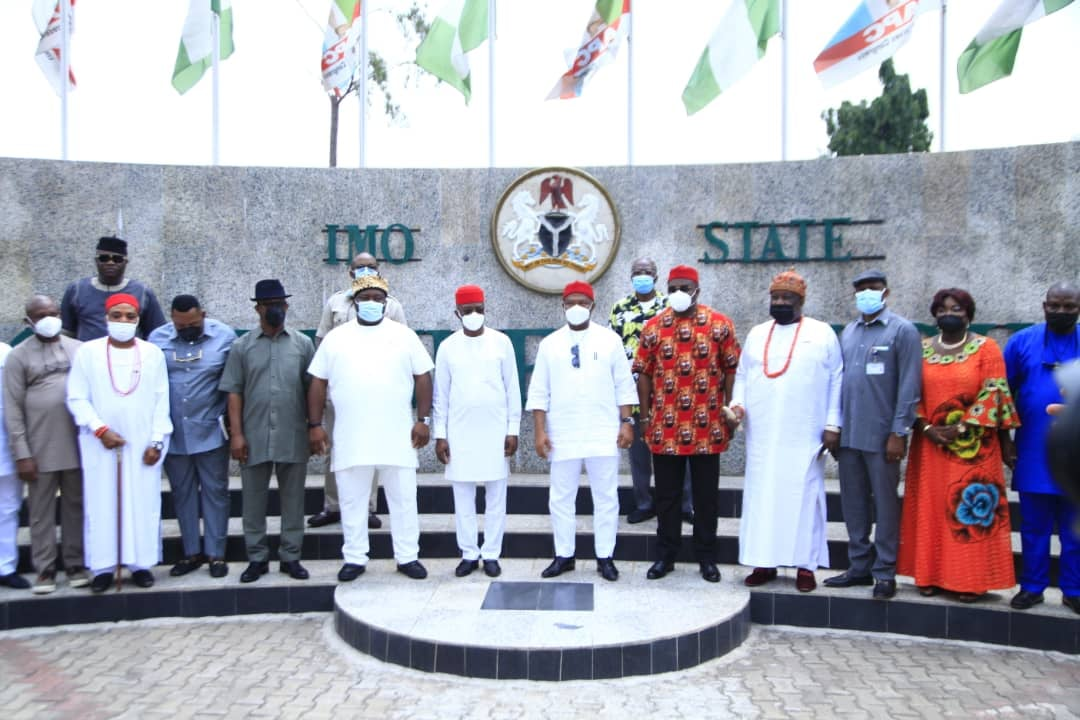
Similarly, the House of Representatives, on same Thursday, passed the PIB, approving five (5) per cent for host communities. This followed the consideration and adoption of the report by the Majority Whip and Chairman of the Ad Hoc Committee on PIB, Mohammed Monguno laid on Wednesday. Monguno, in the said report, prayed the House to consider the report on the ‘Bill for an Act to Provide Legal, Governance, Regulatory and Fiscal Framework for the Nigerian Petroleum Industry, the Development of Host Communities; and for Related Matters, 2021 (HB. 1061) and Approve the Recommendations Therein.’
Speaker of the House, Femi Gbajabiamila, hailed the lawmakers and described the passage of PIB as significant in the history of the parliament. Gbajabiamila said, “Let me use this opportunity to underscore the points made by Hon. Monguno. What this House has just done; if I can score how big what we have just done today, it has been 20 years in the making. This is a product of 360 wise men. I want to commend them for their commitment, their industry and their scholars in producing these 318 sections.”
Question is, how has Senator Albert Akpan been of value to this success? This becomes the main meat of this piece. It was on May 25, 2016, that Senator OBA moved a motion on the floor of the Senate on the need to address Nigeria’s economic state. The motion was entitled, “An urgent need to address the present economic state of the nation”. It was the motion that raised the first alarm of Nigeria, irredeemably sinking into economic recession in 2016. The motion informed the decision of the Senate to summon the Minister of Finance, then Mrs Kemi Adeosun and the Central Bank Governor, Mr Godwin Emefiele. The duo had both admitted that the country was helplessly swinging into recession. At that time, in the 8th Senate, Albert Akpan was serving as the Chairman, Senate Committee on Gas.
Read Also: NNPC/Chevron EGTL Project Agreement: How Senator Bassey Albert Brokered The Deal For Nigeria
Time stretched into 2019, when like some of his colleagues, OBA gained re-election. He became the Chairman, Senate Committee on Petroleum Resources Upstream. He was inaugurated on Wednesday, October 9, 2019. While delivering his address in that gathering, OBA regretted the endless tail of the Petroleum Industry Bill (PIB). Piercing the PIB with his ‘eyes of possibilities’, Senator Bassey Albert submerged himself in the realm of prophecy and pragmatism. He assured stakeholders in the industry that the 9th Senate will surely untie the twisted robes woven around the PIB. He began engagement processes with the Executive and later with Host Communities. He got their inputs for infusion on the final touches of the bill, while yet to be brought to the National Assembly for passage into law. His subsequent appointment as co-chairman, Senate Joint Committee on Petroleum (Downstream) and Petroleum Resources (Upstream), made way for him to blossom and push for the PIB.
It is noteworthy that Senator OBA’s intervention brought about the resolution of the long disputed NNPC/Chevron Escravos Gas to Liquid deal in favour of Nigeria. The gains of this deal cannot be quantified as several billions of dollars found their ways into the Nigerian economy.
Albert would remain a reference point in Nigeria’s red Chambers many years after he may have left. The reason would not be unconnected to his role in getting the Senate to pass its fastest Bill. It was on Thursday, October 3, 2019, when the Senate, through Senator Bassey Albert Akpan, read for the first time, “The Bill to Amend the Deep Offshore and Inland Basin Production Sharing Contracts Act D3 LFN 2004”. The Bill was subsequently referred to the Joint Senate Committees on Petroleum Upstream, Gas, Finance, Judiciary and Human Rights, chaired by Senator Bassey Albert Akpan. The bill was passed less than two weeks after its introduction. Upon its passage on Tuesday, October 15, 2019, it was eventually signed into law by President Muhammadu Buhari. The development brought about $1.5billion into the coffers of the Federal Government of Nigeria. The amendment of the Act was to maintain a competitive environment for the oil and gas sector to thrive and to serve as a precursor to passing the Petroleum Industry Bill.
In a press interview shortly after the passage of the Bill, Senator Bassey Albert said, “the Bill is phenomenal, extraordinary and exciting”. He added that “it is a new dawn for Nigeria’s oil and gas industry.” Albert gave kudos to the Senate and the National Assembly led by the President of the Senate and the Speaker of the House and their entire members. He noted that Nigeria couldn’t benefit from the billions of dollars crossing the Sub Sahara Africa because of its obsolete laws. He explained that only clarity of laws, competitive fiscal incentives attract investors.
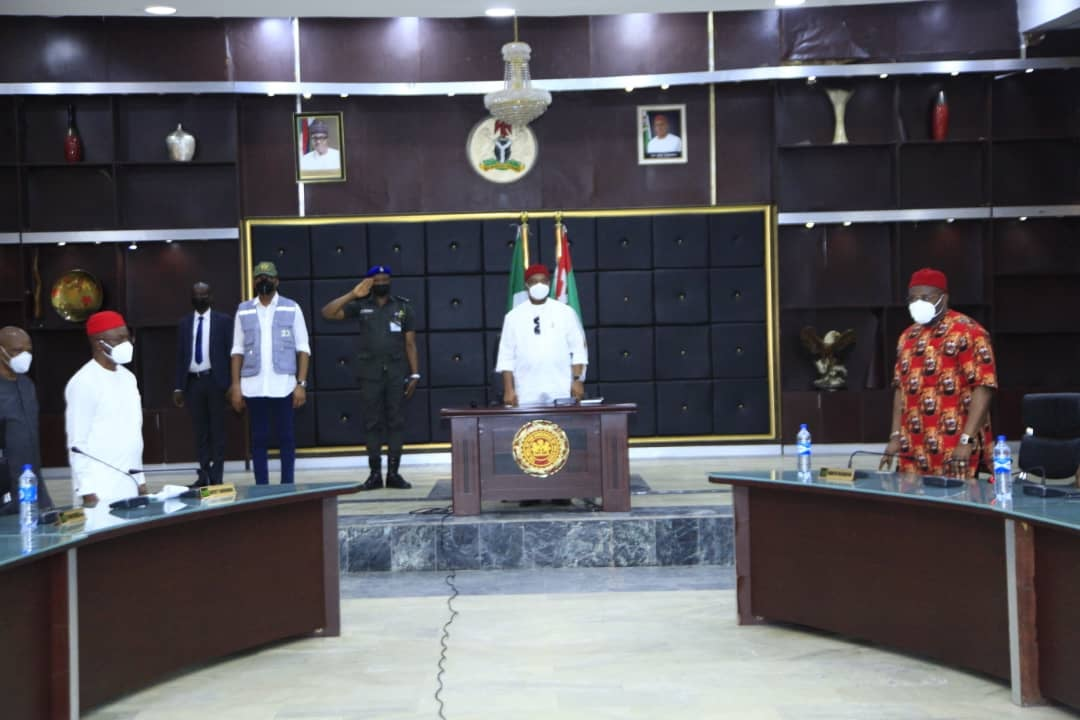
Read Also: Revamping Of Local Refineries Will Reduce Pump Price Of Petrol – Senator Bassey Albert
Senator Albert noted that the passage of PIB by both chambers of the national assembly underscores and sends desired signals that Nigeria was ready for global investment. Assuring the Niger Delta people that the passage of PIB was a clear depiction of democracy, Albert maintained that the development would attract investment and promote peaceful coexistence into the region. He added that through adequate consultations, the Bill has made provision to percentage accruals to be paid directly to the Host Communities.
His words, “Nigeria has been one of the most desirable destinations for the oil and gas industry. This passage of PIB shows that the country is ready to lead the oil and gas investment in Africa. I believe very strongly that whatever we have achieved from the passage of PIB, under the gas flaring penalty is subsumed into ameliorating the sufferings of the host communities, as regards remediation. With the host Community Trust Fund, the communities will now have adequate capacities to develop good fortunes for themselves.
“The fund, together with the 13 percent derivation from revenue allocation and the efforts of the NDDC will go a long way to cushion the sufferings of the host communities and create peaceful coexistence to ensure smooth activities in the Niger Delta. The Bill has excitingly been received by the oil and gas industries across the country.
“Also, both chambers of the national assembly are expected to harmonize their positions before it is forwarded to the President for assent. The president has assured us that he will send the document into law once it is sent to him. This is victory to every Nigerian, every Niger Delta person and the oil and gas industry. We are now ready to receive the much expected inflow of investment into the Niger Delta region and Nigeria in general”, he concluded.
Read Also: 2023: Senator OBA Our Bastion of Hope
Perhaps, this is why the lawmaker representing Ohaji/Egbema/Oguta/Oru-West Federal Constituency in Imo State at the House of Representatives, Kingsley Chima, has said the passage of the Petroleum Industry Bill is the greatest achievement of the 9th National Assembly. Also, the Managing Director of Vhelbherg, an indigenous oil firm, Mr Bank-Anthony Okoroafor, said the passage of the PIB and the expected assent by the President, would help to bring the country’s oil and gas industry back on track. Okoroafor, who is a former chairman of Petroleum Technology Association of Nigeria, said the passage of the Bill would improve investor’s confidence as there would be clarity on the fiscal terms of the industry.
The National Operations Controller, Independent Petroleum Marketers Association of Nigeria, Mr Mike Osatuyi, said the passage of the PIB into law would mark the beginning of the repositioning of the oil and gas industry. “If the President assents to it, then that is the beginning of the reform that we have been expecting in the oil and gas industry. It is the beginning of deregulation in the downstream sector,” he said. He noted that the passage of the PIB would allow market forces to determine petrol prices and curb smuggling of the product.
The outgoing Director-General, Lagos Chamber of Commerce and Industry, Dr Muda Yusuf; National President, Petroleum Products Retail Outlets Owners Association of Nigeria, Billy Gillis-Harry, among others, observed that through the bill, a deregulated downstream oil sector would be achieved. He added that this would boost the fortunes of the country and improve the Nigerian economy.
Meanwhile, further findings reveal that only four (4) per cent of the $70billion investments made in Africa’s oil and gas industry between 2015 and 2019 was in respect of Nigeria, even though it is the biggest producer and has the largest reserves on the continent. A recent report by the National Bureau of Statistics, states that only $53.5m or 0.55 per cent of total investment of $9.680billion in Nigeria in 2020 was made in the industry. If Nigeria must achieve the tall ambition of 40 billion barrels of oil in reserves and four (4) million barrels of oil per day, the need to attract new investments into the sector becomes crucial.
An exhaustive assimilation of the facts here presented, shows Senator Albert as one who had long set targets for himself. While many lawmakers may have failed to record meaningful contributions to the great leap, Albert proves himself as a tested and trusted servant. His involvement in the whole activities places him on an irrefutable podium of fame. To even get to understand that he sponsored the Petroleum Industry Administration Bill, and most importantly, the Gas Flaring Prohibition and Punishment Bill, makes it even clearer that this man had a focus in writing his own history.
Obviously, OBA came as a man from afar, deeply foresighted and scaled through setbacks. And today, through his vision, strong mission statement and determination, he gradually drew himself to the central position. He became a curious servant-leader, willing to make sacrifices to gain access to the state. At last, he found himself not only on the table of decisions but as the chairman of the committee that did all recommendations to the Senate.
Indeed, Senator Bassey Albert Akpan is that centripetal protagonist that has championed the success story of the earth-shaking Petroleum Industry Bill.


